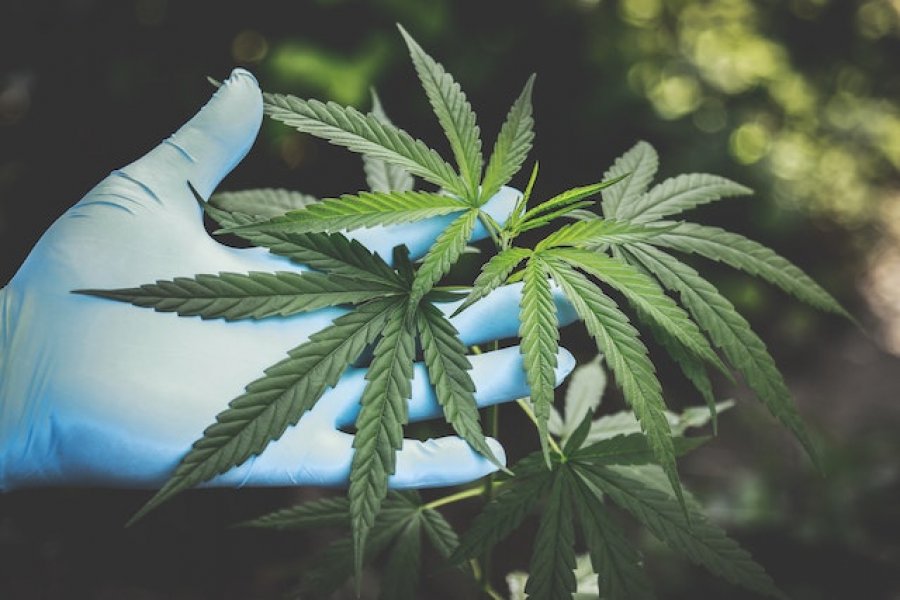
Medical marijuana is useful for a variety of conditions. In Hawaii, a list of debilitating medical conditions qualifying for medical cannabis has been issued.
The list hosts cancer, epilepsy, lupus, and post-traumatic stress disorder among other conditions. Effective from June 29th, 2017, multiple sclerosis (MS) is on this list of qualifying conditions as well.
MS patients take interest in medical marijuana at various stages in the management of their condition. Some see cannabis as a new hope after the regular treatment isn't delivering any relief. Others weigh medical marijuana as an option early on in their treatment plan.
In this article, we'll delve into the relationship between multiple sclerosis and medical cannabis. You'll learn about its potential benefits and side effects when combating the symptoms of MS.
What is Multiple Sclerosis (MS)?
Multiple sclerosis (MS) is a serious medical condition that can affect the brain, spinal cord, and optic nerves. In most cases, people suffering from MS experience issues with their balance, muscle control, and vision.
Myelin is a fatty material that wraps nerve fibers for protection. In MS, your immune system starts to destroy myelin. As a result, the nerves get damaged. There might be a formation of scar tissue as well.
All of this damage results in the brain's diminished ability to send signals throughout your body. The symptoms directly reflect incorrect messaging through the nerves.
Here are some of the common symptoms of MS:
- Attention and focus problems
- Blurred vision
- Depression
- Inadequate bladder and bowel control
- Muscle spasms
- Numbness
- Pain
- Sexual issues
- Tingling
- Walking difficulties
How Does Marijuana Help People With MS?
2018 Annual Meeting of the Consortium of Multiple Sclerosis Centers in Nashville, TN uncovered new research on marijuana and MS. An ongoing systematic review of research results promises cannabinoid effects on MS patients.
Researchers are looking for any effects of marijuana in the following categories:
- Adverse effects
- Bladder function
- Disability and its progression
- Pain
- Spasticity
- Quality of life
- Tremor
All of these are important points of consideration for MS patients. So far, the analyzed evidence showed that cannabinoids could have modest effects in MS for pain and spasticity.
However, this isn't the only research effort that has focused on medical marijuana and MS. A peer-reviewed article published in Frontiers of Neurology looked at the effects of CBD on people struggling with MS.
CBD supplements were shown to carry the potential of reducing fatigue, pain, and spasticity. The synergy of these positive effects could improve the mobility of MS patients.

Throughout the years, additional evidence has been found. Neurology, a highly cited and peer-reviewed neurology journal, published an article on the "real world" experience of medical marijuana in managing MS symptoms.
Researchers asked subjects to report their experience with medical cannabis usage and effects. Around 77% of respondents said that cannabis helped to manage their symptoms. They mainly saw improvements in pain and spasticity.
A further interesting finding has been that cannabis use reduces being relied on prescription drugs. People with MS decreased the use of the following drugs after starting to take cannabis:
- Antidepressants
- Benzodiazepines
- Pharmaceutical Opioids
Are There Risks and Side Effects of Medical Marijuana for MS Patients?
MS patients need to set realistic expectations of the effects of medical marijuana. While studies have shown that cannabis could help relieve some of the symptoms, other issues related to MS need a different intervention.
Multiple sclerosis often creates cognitive symptoms and tremors. Marijuana is not a likely candidate for countering tremors. A systematic academic review has backed this up.
The same limitation exists for cognitive symptoms, including so-called brain fog and concentration difficulties. Research published in Neurology showed that MS patients smoking marijuana achieved worse results on cognitive tests in comparison to the control group.
Taking medical marijuana subjects MS patients to possible side effects. Not all people develop side-effects from cannabis use. There are numerous individual factors, possibly working in combination, that shape the final experience.
Here are the potential side effects of cannabis:
- Concentration problems
- Dizziness
- A drop in blood pressure
- Dry mouth
- Eye redness
- Mood changes

- Hallucinations
- Tachycardia (fast heartbeat)
- Urinary retention
People respond differently to medical marijuana treatment. No single experience that you hear about will successfully predict the result of your personal medical cannabis treatment.
That's because there are many variables forming the treatment's efficacy. These include weight, age, genetic dispositions, gender, and other possible factors.
What to Know When Using Medical Marijuana for MS in Hawaii?
Every state that has legalized medical marijuana has its own rules and regulations. Let's take a closer look at some of the key points you should keep in mind in Hawaii:
- You need to transport your medical marijuana for MS in a sealed container.
- Caregivers and patients can't transport cannabis inter-island.
- You can possess four ounces of processed marijuana. In total, you are allowed to cultivate 10 plants. The same rules apply when you calculate the amount collectively with your caregiver.
- All the Smoke-Free laws in Hawaii apply to the use of medical cannabis.
- When you are in a public place, you aren't allowed to remove cannabis from the sealed container.
In a Nutshell: How Cannabis Helps People With Multiple Sclerosis.
Multiple sclerosis (MS) is a condition that greatly affects patients' quality of life. MS patients experience coordination issues, pain, concentration difficulties, disturbed vision, and other problems.
Research has shown that medical cannabis may help people in managing their MS symptoms. In particular, the most promising symptom areas are spasticity and pain. However, medical cannabis won't help many other symptoms linked to MS.